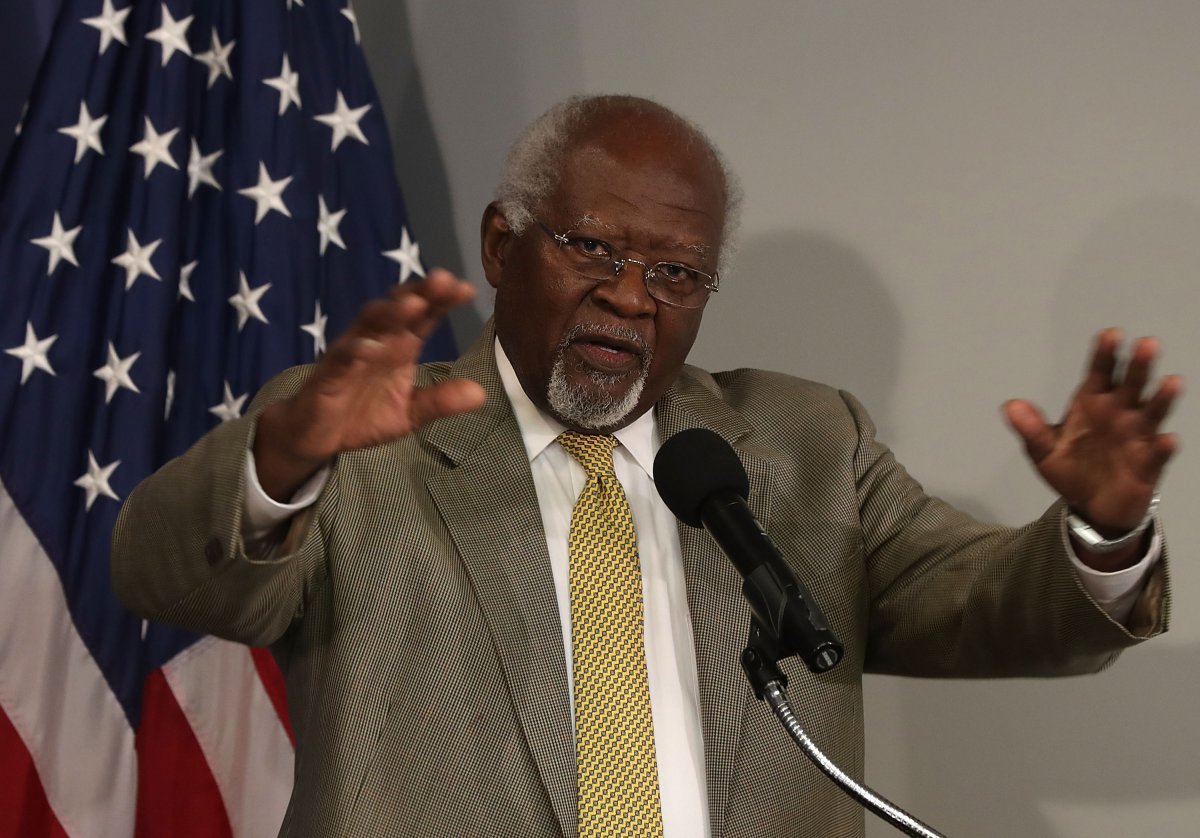Joe Biden’s pardon of Black civil rights leader rights “injustice”
Ex-President Joe Biden used his waning hours in office in part to issue a posthumous pardon for Black civil rights icon Marcus Garvey, who family members and advocates argued was mistreated for decades.
On January 19, Biden used his power to pardon Garvey and four others convicted of nonviolent offenses. He also commuted two prison sentences.
Jamaican-born Garvey, the only one posthumously pardoned, led one of the earliest Black civil rights movements in the Americas. Aside from founding the Universal Negro Improvement Association to combat racial inequality, and starting the Negro World newspaper, he established one of the original Black-owned shipping companies, Black Star Line, in 1919 to boost African American entrepreneurial power nationwide.
He inspired other major civil rights figures including Malcolm X and Martin Luther King, Jr.—the latter of whom described Garvey as “the first man of color in the history of the United States to lead and develop a mass movement.”
Library of Congress/Corbis/VCG via Getty Images
“He gave birth, if you will, to the anti-colonial movement all over the world,” Garvey’s son, Dr. Julius Garvey, 91, told Newsweek. “All of the independent countries in the Caribbean took from Marcus Garvey’s teachings. And the same thing is true of people of Africa [like Nelson Mandela].
“It’s a global movement that was oppressed and repressed. This is giving in some sense new life. … But it gives fresh energy to those put their trust and their faith—not just in Marcus Garvey but in his principles—because these are universal principles based on African culture and our tradition.”
Julius Garvey said that efforts for a pardon ramped up during the Obama administration, describing how he and family members and advocates hoped that the first Black president would see the value in Garvey’s legacy.

Alex Wong/Getty Images
He said Biden “accomplished something that President Obama didn’t do,” adding that no formal efforts for a pardon or exoneration were made during Donald Trump‘s first term.
“We felt that most African Americans are Democrats, and Democrats would be more susceptible to dealing with a situation that affects the African American community,” Julius Garvey said when asked why the Trump administration wasn’t approached.
“Obama, he was the first Black president and that’s why we started there.”
Broad Signal for Larger Criminal Justice Reform
Biden said that Garvey’s pardon “highlights the injustice underlying his criminal conviction.”
In 1922, Garvey was arrested and convicted of mail fraud associated with Black Star Line’s advertising of a stock sale for a ship not yet owned. After his 1923 conviction his sentence was commuted by President Calvin Coolidge.
Garvey was later deported to Jamaica in 1927. He died in London in 1940 at age 52.
“My grandfather’s conviction was not only a miscarriage of justice but a reminder of how the overreach of power can be weaponized to silence the voices that seek fairness, equity and accountability,” Nzinga Garvey, granddaughter of Marcus Garvey, said in a statement. “Marcus Garvey’s life was dedicated to uplifting humanity, urging us all to embrace a vision of justice that is larger than any single race or nation.”

Roberto Schmidt/AFP/Getty Images
It’s also the end of a long legal road for Anthony Pierce, a partner at Washington D.C.-based Akin Gump who represented the Garvey family pro bono dating back to the President George W. Bush administration.
“I’m thankful that President Biden righted this wrong against Marcus Garvey and his family,” Pierce told Newsweek. “It has been a long battle as counsel for the family and I’m so happy we finally achieved this wonderful result.”
Efforts to posthumously pardon Garvey began nearly 40 years ago, when then-Democratic Rep. John Conyers held hearings on his exoneration.
In more recent years, New York Rep. Yvette Clarke and other members of the Congressional Black Caucus have encouraged Biden to issue the pardon as a means of righting Garvey’s legacy while simultaneously advancing racial justice.
A spokesperson for Clarke referred Newsweek to a statement Clarke made following Biden’s pardon, in which she said that “it is no secret that Black people in America have always been subjected to a different standard of justice.”
Clarke has also pushed for Garvey’s “full and unambiguous exoneration”—a sentiment shared by Julius Garvey.
“America has not really looked in the mirror in terms of its own history and made any attempt to correct it. … There’s some satisfaction in knowing that part of what we’ve been trying to do for all this time has been accomplished,” Garvey said. “We’ve been on this road for about 40 years.”
He added that “in some sense” the South won the Civil War, based on the socioeconomic and political disadvantages endured by Black Americans over generations.
“There are enough people who have helped us along the way,” he said. “It’s not just my journey; it’s a journey a lot of people subscribe to—Marcus Garvey’s vision and ideas of education, entrepreneurship … and the mental ability to change your own circumstance.
“I can do what I can do in my lifetime and continue because I think there’s going to be a new paradigm, which is basically an African paradigm based on African humanism. That’s my perspective.”

